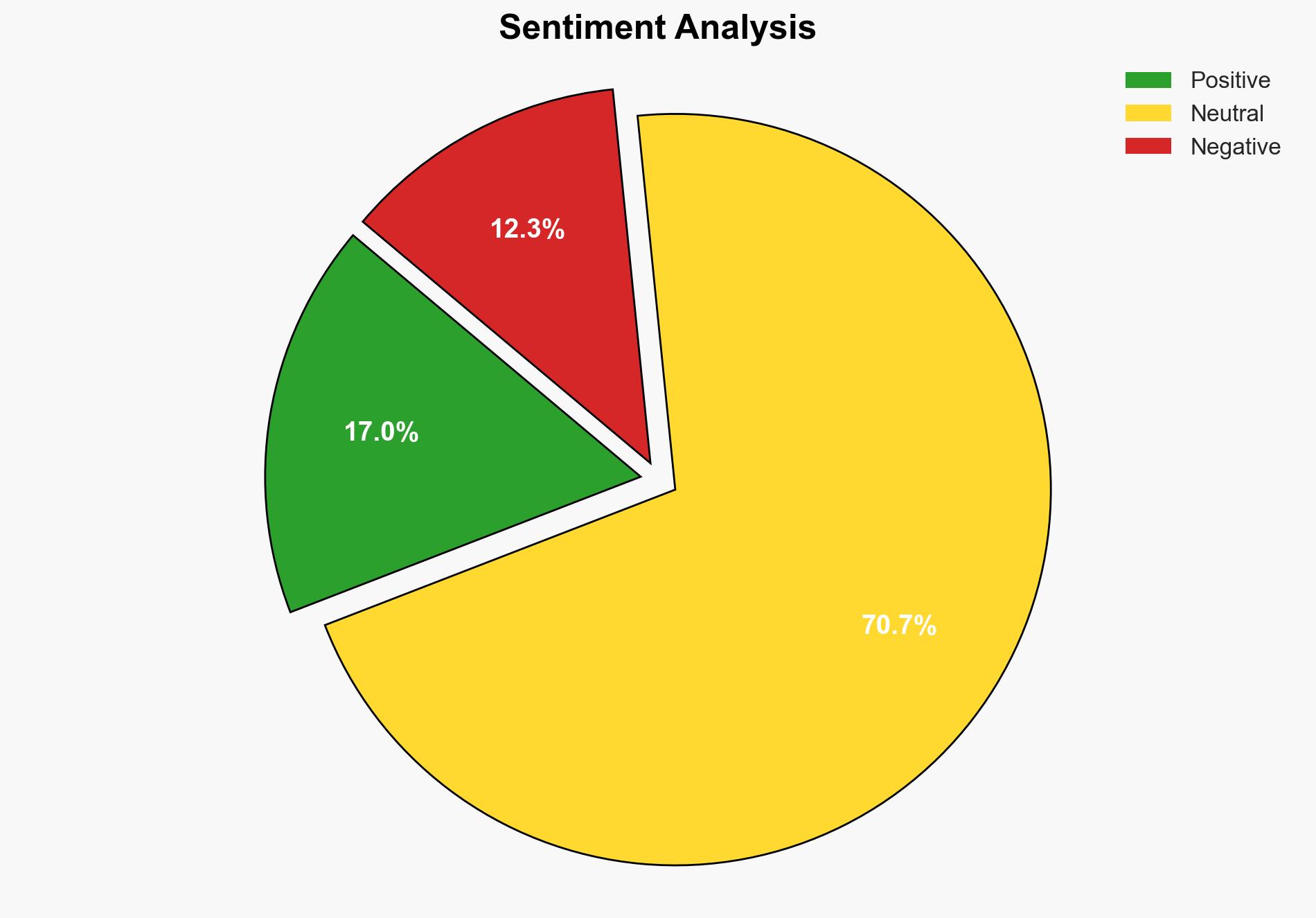The Genocide of Palm Oil – Lawyersgunsmoneyblog.com
Published on: 2025-03-24
Intelligence Report: The Genocide of Palm Oil – Lawyersgunsmoneyblog.com
1. BLUF (Bottom Line Up Front)
The increasing global demand for palm oil has led to significant human rights violations and environmental destruction in West Papua, Indonesia. Indigenous communities face displacement, and ecocide is prevalent due to the expansion of palm oil plantations. The situation requires urgent international attention and intervention to prevent further human rights abuses and ecological damage.
2. Detailed Analysis
The following structured analytic techniques have been applied for this analysis:
General Analysis
The demand for palm oil, driven by major food and cosmetic corporations, has resulted in the widespread displacement of indigenous peoples in West Papua. The conversion of rainforests into monoculture plantations has led to significant ecological damage. Campaigners have called for a boycott of products containing palm oil sourced from this region. The situation is exacerbated by the lack of self-determination rights for the West Papuan people, leading to ongoing human rights violations.
3. Implications and Strategic Risks
The continued exploitation of West Papua’s natural resources poses several strategic risks:
- Human Rights: Ongoing violations against indigenous communities could lead to international condemnation and potential sanctions against Indonesia.
- Environmental: The destruction of rainforests contributes to global climate change and biodiversity loss.
- Economic: Disruptions in palm oil supply chains could impact global markets and lead to increased prices for consumer goods.
- Regional Stability: Tensions between Indonesia and neighboring Pacific countries may escalate due to perceived colonial practices.
4. Recommendations and Outlook
Recommendations:
- Encourage international bodies to investigate and address human rights violations in West Papua.
- Promote sustainable palm oil production practices and certification to reduce environmental impact.
- Advocate for the recognition of indigenous land rights and self-determination for West Papuans.
- Implement stricter import regulations for products containing unsustainably sourced palm oil.
Outlook:
Best-case scenario: International pressure leads to policy changes in Indonesia, improving human rights and environmental protection in West Papua.
Worst-case scenario: Continued exploitation and human rights abuses result in increased regional instability and international conflict.
Most likely outcome: Incremental improvements in sustainability practices, with ongoing advocacy required to address human rights concerns.
5. Key Individuals and Entities
The report references several key individuals and entities involved in the situation:
- Aki Ap – Spokesperson for the United Liberation Movement for West Papua.
- Donald Trump – Mentioned in the context of political influence on global trade policies.
- Nestlé – Identified as a major corporation linked to the palm oil supply chain.





